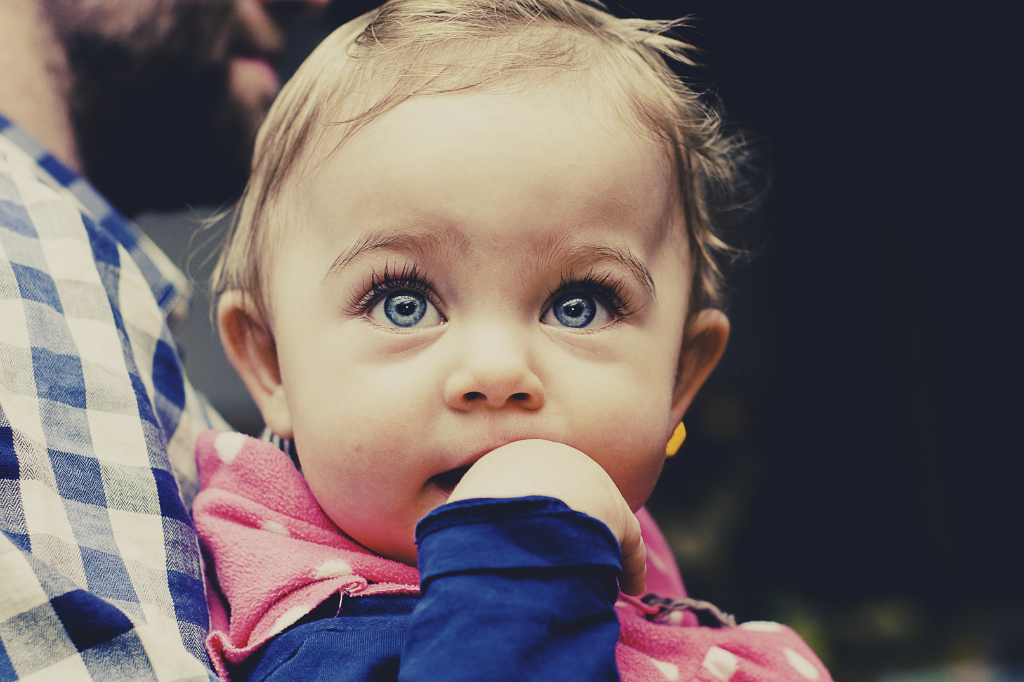If mental health was tracked on a timeline, what would it look like at each stage? How does our age and development set the tone for certain conditions and what, if any, are the emotional health benefits of being young, mid-life or old? From baby behaviour to adulting, discover what’s really going on in that head of yours.
By Eliza LeMessurier w/ Clinical Psychologist Lynn Jenkins and Matt Stanton
As babies, we see the world anew, our emotions ‘fresh’ to say the least. By the time we’re at school, we’re forming a personality and navigating social worlds. Then teenagerhood hits as do our hormones propelling to a place where some would argue, ‘real life begins’. By the time we realise we’re middle age, we’ve likely experienced sides of ourselves we never knew existed. Then we start to slow down alongside our bodies and minds.
How does our age set the tone for our mental health development and what are the emotional challenges and benefits of being young, mid-life or old?
Baby Behaviour
The first 100 days of a baby’s life is a time-sensitive critical period of development, especially when it comes to brain development and building emotional foundations, says Lynn Jenkins, Clinical Child Psychologist and author of Best Start. These foundations largely come from interactions that babies have with their main caregivers. Experiences can help a baby to develop a positive idea of themselves as well as the beginnings of things like self-belief, thoughts and feelings; self-esteem and self-value; how they operate in relationships; how they behave socially; and a sense of emotional security. (1) For example, babies feel distress and cry when they’re hungry, cold, wet, or uncomfortable, and they experience positive emotions when they are fed, soothed, and held. (2)
Common challenges for babies include:
- Consistency in their care
- Responsiveness to their needs
- At the mercy of the ‘quality’ of the internal model they are developing (aka main carer)
This experience-based sculpting of the brain is arguably THE most important part of a baby’s mental health journey because it is formative. Not only does it alter the way a baby’s brain is built (I.e., formation of neural pathways and communication cells) but it also effects how the brain functions going forward. (3) As this Harvard paper so aptly describes, a baby’s early emotional experiences literally become embedded in the architecture of their brains.
Mental benefits of being a baby:
- Fresh brain with HUGE potential (to whatever their potential is)
- Predictability is a good thing (creates sense of safety)
- Wired to make strong connections with their adults
So, if you are a parent or carer, the connection and interaction you have with your baby is helping to finesse their emotional mechanics (no pressure or anything folks!).

Preschoolers
The emotional states of toddlers and preschoolers are complex – just ask any parent! Preschoolers move beyond the baby blue book of checks and balances to developmental milestones like growth, motor movement, speech and hearing.
At this age, carers can experience the terrible twos and threenagers, whose turbulent behaviours fluctuate like a rollercoaster of highs, lows, twists and tantrums. This can often feel to the adult observer as irrational and reactive. However, what’s happening mentally for kids at this age is that they’re learning how to notice things too! They’re figuring out their emerging capacity to interpret their own personal experiences and at the same time trying to understand what others are doing and thinking. (2)
Common challenges for preschoolers include:
- Still needing co-regulation but their adults might not expect them to
- Needing to be ‘social’ (take turns, share, etc) with varying levels of little skills (take turns, share, etc) with varying levels of developing skills
- Experiencing emotions as big and raw
‘Kids are wonderful observers but terrible interpreters’, says Lynn Jenkins. They’re so good at observing the nuances of people and life around them but don’t quite yet know how to interpret or respond to them, AND their little brains aren’t yet developed enough to interpret situations accurately. For this reason, preschooler behaviour can seem completely unreasonable to adults but it’s a precious time in a child’s emotional development.
Mental benefits of being a preschooler:
- Naturally mindful i.e., living in the moment as it is happening
- Naturally excited and awed by the ‘simple things’
- Still in the ‘mold-able’ window of development
Another noteworthy experience in the toddler stage is exploration. As the toddler races around and explores the world curiously, they’re also learning essential play skills – the early roadmap for relationships.
Child Mental Health
The start of school marks another major milestone in a child’s social and emotional development. At this age, kids step into new social worlds beyond their family unit and begin to learn how to navigate and cope with their own and other people’s feelings and reactions in busier social settings (aka the playground). Studies have shown that the emotional health of young children is closely tied to the social and emotional characteristics of the environments in which they live (2) and there is nothing quite like school to bring this to the forefront.
Infants and primary school aged kids are ego centric (self-centred) and there is little to no empathy from child to parent. Young children are also capable of surprisingly deep and intense feelings of sadness as well as to the heights of joy and happiness for which they are better known (2).
Common challenges for kids include:
- Anxiety (Eg. Social, sleep, food, separation, relationship)
- Anger
- Depression
- Grief/loss
During the early school years, some parents may experience stress and grief with their children who may be identified as having a developmental disorder (ADHD, Autism, Learning Disorders, Tourettes, Anxiety disorder- just to name a few) which may require the help of paediatricians, child psychologists, and other allied health specialists like occupational therapists and speech pathologists.
Mental benefits of being a kid:
- Imagination and fantasy is rife
- Laughter and amusement is pure
- Innocent to the realities of the world
While parents can be prone to thinking the school age is a time for their kids ‘to take flight and be independent’, just like babies, kids this age need regular and consistent emotional affirmation and reinforcement to boost emotional development and a sense of secure attachment (the template for effective relationships).
Tweens & Teen Mental Health
The teenage years can be wild and tricky as children rapidly transform both physiologically and mentally. This stage is also marked by navigating things like peer influence, boundaries, consequences and risk.
In 2019, a study by Mission Australia with a cohort of more than 25,000 young people found that mental health was one of the top three most important issues of concern for teens.
Common challenges for teens include:
- Coping with stress
- School or study problems
- Body image /physical health
- Family conflict
- Friendship ups and downs
- Financial security
For teens, an influx of hormones results in physical changes known as puberty. This stage also marks by significant changes in brain activity. During puberty, the brain pours out hormones like adrenal stress, sex hormones, and growth hormones, which in turn influences brain development. Recent research has also shown that human brain circuitry is not mature until the early 20s. Among the last connections to be fully established are the links between the prefrontal cortex, seat of judgment and problem-solving, and the emotional centers in the limbic system, especially the amygdala. These links are critical for emotional learning and high-level self-regulation. (4) Adolescents do about as well as adults on cognition tests, for instance. But if they’re feeling strong emotions, those scores can plummet. The problem seems to be that teenagers have not yet developed a strong brain system that keeps emotions under control.(5)
Mental health benefits of being a teen:
- Much more cognitive ability
- Really good at getting ‘me’ time
- Can thrive when their developmental needs are met like (appropriate levels of) control and freedom
Teens need time and space to develop autonomy (independence). It is their test run for adulthood survival. Teens want to fit in, but they can no longer fit into childhood, and they desperately want to have a decent social rank with their peers and lock parents out of their social world to develop their own social instincts and problem-solving abilities.
A side note for parent of teens….When it comes to teens, parent involvement is less of a MANAGER and more of a CONSULTANT, if asked. It is how we have related and kept pace with and responded to their development that largely determines if we are asked!
If you are a parent of a teen, remember…they’re on an unknown, awkward rollercoaster. Don’t be offended or try to take over, just hover and respond when “they!” want to talk. Listen, don’t take over and try to solve their problems (they’ll bite you). Ask them how they would like to solve their problems, and if they’re struggling to do this, tentatively guide them rather than direct them. Given parents are feeling more emotionally taxed, teenagers can sometimes suggest ‘no one cares about them’. If you can, think about outsourcing a little bit of emotional support for them to other family members they are close to (grandparents, aunts or uncles) this can shift some of the emotional matters safely outside of the household.
Adult Life
When it comes to adults’ mental health challenges and triumphs can be vast and complex. By adulthood, the brain is ‘matured’ in the sense that the critical parts of the brain, for example those involved in decision making, are fully developed (around the age of 25).
However, while ‘matured’ in their brain development, adults are at the crucial ‘building phase’ of their work, family and leisure life. For example, on any given day they can be dealing with child behaviour, work or relationship stress and ageing parents just to name a few things.
Common challenges for adults include:
- Stress
- Anxiety
- Depression
- Grief/loss
- Relationships
- Financial Stress
- Pre/post-natal concerns
- Parenting
When it comes to their mental health, adults need ability and courage to experience benefits such as:
- Self-acceptance
- Sense of enrichment
- Family unit developing

The Age of Acceptance
Mental health concerns resulting from physical challenges. For example, research shows that medical conditions like cancer and stroke can increase the risk of depression. (7)
Although the challenges seem vast, some of the benefits of being older are the quality stuff.
Mental benefits of being a golden oldie:
- Less influenced by others’ opinions and judgements
- More aspects of life with which to accept, have peace
- An appreciation of life
Brain age (for want of a better term) plays a role in shaping our human experience, but it is not the only factor in our mental health capacity. The care given to us as a child, the social and emotional environments in which we are raised, the experiences of our teenage life, all play a role in shaping our emotional and mental make-up. Outside of challenges and triumphs, what really matters is that at any given age or stage, our mental health (both body, mind and relationships) depends on our ability to self-nurture, grow and accept who we are and where we are at.
Life Matters Disclaimer.
All content in our article is published for informational purposes only. It is not intended to be a substitute for professional psychological advice and should not be relied on as personal advice. Always seek the guidance of a qualified psychologist with any questions you may have regarding your mental health.
Sources
- Jenkins, Lynn (2012). Best Start: Understanding your baby’s emotional needs to create the best beginnings. https://www.booktopia.com.au/best-start-lynn-jenkins/book/9781921497896.html
- National Scientific Council on the Developing Child (2004). Children’s Emotional Development Is Built into the Architecture of Their Brains: Working Paper No. 2. http://www.developingchild.net
- Sullivan RM. The Neurobiology of Attachment to Nurturing and Abusive Caregivers. Hastings Law J. 2012 Aug;63(6):1553-1570. PMID: 24049190; PMCID: PMC3774302.
- https://www.health.harvard.edu/mind-and-mood/the-adolescent-brain-beyond-raging-hormones
- https://www.nytimes.com/2016/12/21/science/youre-an-adult-your-brain-not-so-much.html
- Teo K, Churchill R, Riadi I, Kervin L, Wister AV, Cosco TD. Help-Seeking Behaviors Among Older Adults: A Scoping Review. J Appl Gerontol. 2022 May;41(5):1500-1510. doi: 10.1177/07334648211067710. Epub 2022 Feb 13. PMID: 35156428; PMCID: PMC9024019.
- https://www.nia.nih.gov/health/depression-and-older-adults
- https://www.who.int/news-room/fact-sheets/detail/mental-health-of-older-adults
If you need some support or help – Give us a call or book now.


